Table of Contents
The SSC MTS and Havaldar Exam 2025 will have just one paper, Paper 1. It will test you on four key subjects: Reasoning Ability, Numerical Aptitude, English Language, and General Awareness. In this article, you’ll find everything you need to know about the SSC MTS Syllabus and Exam Pattern, including what topics to focus on in each subject, how marks are given, and the minimum score needed to pass. We’ve also added a list of helpful books and smart preparation tips at the end to make your study journey easier and more effective.
SSC MTS Syllabus 2025
The SSC MTS 2025 Exam is scheduled to take place from 20th September to 24th October 2025. This gives candidates a good amount of time to prepare for the computer-based test. By following the updated SSC MTS Tier 1 syllabus, candidates can easily identify the subjects or topics where they need to improve. To get a better understanding of the exam pattern and difficulty level, it’s also recommended to go through previous year papers along with the syllabus. This approach will provide a clearer idea of what to expect in the exam.
SSC MTS Syllabus and Exam Pattern 2025
The SSC MTS Exam includes Paper 1 and a Physical Efficiency Test (PET)/Physical Standard Test (PST), which is only applicable for Havaldar posts. Before diving into the detailed subject-wise syllabus, take a look at the key highlights of the exam pattern and syllabus summarised in the table below.
| SSC MTS Syllabus 2025: Overview | |
| Conducting Body | Staff Selection Commission |
| Post | MTS/Havaldar Post |
| Category | Syllabus |
| Selection Process |
|
| Negative Marking | Session 1- No negative marking Session 2- 1 mark |
| No. of Questions | 90 |
| Maximum Marks | 270 |
| Official website | www.ssc.gov.in |
SSC MTS Exam Pattern 2025
The SSC MTS Exam Pattern 2025 for Paper I consists of a Computer-Based Test conducted in 15 languages and divided into two compulsory sessions: Session I and Session II. It is important to note that missing either session will result in disqualification.
Session I does not have negative marking, whereas in Session II, 1 mark will be deducted for every incorrect answer. Since there have been major changes in the number of questions this year, candidates are advised to thoroughly understand the revised exam pattern. Refer to the detailed SSC MTS Exam Pattern given below.
| SSC MTS Exam Pattern- Session 1 | |||
| Subject | No of Questions | Marks | Duration |
| Numerical and Mathematical Ability | 20 | 60 | 45 minutes
|
| Reasoning Ability and Problem-Solving | 20 | 60 | |
| Total | 40 | 120 | |
Check the SSC MTS Exam Pattern for Session 2 below. There will be two sections in Session 2, in which 25 questions from each section will be asked for 150 marks.
| SSC MTS Exam Pattern – Session 2 | |||
| Subject | No of Questions | Marks | Duration |
| General Awareness | 25 | 75 | 45 minutes
|
| English Language and Comprehension | 25 | 75 | |
| Total | 50 | 150 | |
SSC MTS Syllabus 2025 Subject-Wise For Paper 1
The SSC MTS Exam is a single-tier computer-based test that covers four key subjects: Reasoning Ability, Numerical Aptitude, English Language, and General Awareness. The exam is conducted in two sessions. In Session 1, candidates will be tested on Numerical & Mathematical Ability and Reasoning & Problem-Solving. Session 2 will include questions from English Language and General Awareness.
General Intelligence and Reasoning Syllabus
| Subject | Topics |
| General Intelligence and Reasoning |
Number & Alphabetical Series
|
|
Coding-Decoding
|
|
| Analogy | |
| Odd one Out | |
| Syllogism | |
|
Directions Sense
|
|
| Ranking | |
|
Non-verbal: Paper Folding & Cutting, Mirror Image, Embedded or Completing the Image, Counting Figure
|
|
| Blood relations | |
| Matrix | |
|
Mathematical Calculations
|
|
|
Word order according to the dictionary
|
Numerical Aptitude Syllabus
| Subject | Topics |
| Numerical Aptitude |
Number System/HCF/LCM
|
|
Percentage, Average
|
|
| Time & Work | |
| Profit & Loss | |
|
Ratio, Mixture & Allegation
|
|
|
Time Speed Distance
|
|
| CI & SI | |
| Geometry | |
| Mensuration | |
| Trigonometry | |
| DI | |
| Algebra |
English Syllabus
| Subject | Topics |
| English | Spot the error |
| Fill in the blanks | |
| Synonyms | |
| Antonyms | |
|
Spelling/detecting misspelt words
|
|
|
Idioms & Phrases,
|
|
|
One word substitution
|
|
|
Improvement of sentences
|
|
|
Comprehension Passage
|
General Awareness Syllabus
| Subject | Topics |
|
General Awareness |
Indian Constitution
|
|
Award-Winning Books
|
|
| History, Culture | |
|
Awards and Honours
|
|
|
Economy and Polity
|
|
|
Current Affairs, Science Inventions & Discoveries
|
|
|
Important Financial
|
SSC MTS Syllabus 2025 PDF
Candidates can download the SSC MTS Syllabus PDF here by clicking on the link below. Candidates can download it and keep it for reference while preparing for the exam. It is advised to take a printout of the revised Syllabus PDF and always keep it with you for easy access.
SSC MTS Qualifying Marks
The minimum marks to qualify in the exam has been discussed in the table given below for each category. The candidates will need to score these marks to qualify in the examination.
| Category | Minimum Qualifying Criteria |
| UR | 30% |
| OBC/EWS | 25% |
| All Other Categories | 20% |
SSC MTS CBT Languages
The SSC MTS Computer-Based Test (CBT) is conducted in multiple languages to make the exam more accessible to candidates across different regions of India. Apart from English and Hindi, the exam is also available in several regional languages, including:
- English
- Hindi
- Assamese
- Bengali
- Gujarati
- Kannada
- Konkani
- Malayalam
- Manipuri (also Meitei or Meithei)
- Marathi
- Odia (Oriya)
- Punjabi
- Tamil
- Telugu
- Urdu
SSC Havaldar Physical Standard Test for Male and Female Candidates
The candidates can go through the minimum physical standards that are required for the Halvadar posts in CBIC and CBN. The table given below discusses the SSC Havaldar Physical Standard Test for male and female candidates.
| Particulars | Male | Female |
| Height | 157.5 cms
(relaxable by 5 cm in the case of Garhwalis, Assamese, Gorkhas, and members of Scheduled Tribes) |
152 cms
(relaxable by 2.5 cms in the case of Garhwalis, Assamese, Gorkhas, and members of Scheduled Tribes) |
| Chest | 76 cms (unexpanded)
Minimum expansion: 5 cm |
— |
| Weight | — | 48 kg
(relaxable by 2 Kg in the case of Garhwalis, Assamese, Gorkhas, and members of Scheduled Tribes) |
Books to Prepare for the SSC MTS Exam 2025
To prepare for the upcoming SSC MTS Exam, candidates can refer to the books we shared below. We recommended candidates stick to one resource only and avoid changing the study materials.
SSC MTS Books for Quantitative Aptitude
| Name of Book | Author | Publisher |
|---|---|---|
| Objective Arithmetic | Rajesh Verma | Arihant Publication |
| Quantitative Aptitude for Competitive Examinations | R.S. Aggarwal | S.Chand |
| SSC Mathematics Solved Papers | – | Kiran Publication |
Books for Reasoning for SSC MTS 2025
| Name of Book | Author | Publisher |
|---|---|---|
| A Modern Approach to Verbal & Non-Verbal Reasoning (Revised Edition) | R.S. Aggarwal | S. Chand Publication |
SSC MTS English Language Books
| Name of Book | Author | Publisher |
|---|---|---|
| Word Power Made Easy | Norman Lewis | – |
| Objective General English | S.P. Bakshi | Arihant Publication |
| Objective English For Competitive Examinations (5th Edition) | Hari Mohan Prasad, Uma Rani Sinha | McGraw Hill Education |
SSC MTS Books for GA/GS
| Name of Book | Author | Publisher |
|---|---|---|
| 14000+ Questions on GS | – | Arihant Publication |
| General Knowledge | – | Lucent |
Subject-wise Preparation Strategy and Tips
To prepare for Paper 1 of the SSC MTS Exam 2025, start by thoroughly understanding the SSC MTS Preparation Tips, which include tips for General Intelligence and Reasoning, Numerical Aptitude, General English, and General Awareness.
- General Intelligence and Reasoning: Practice puzzles, analogies, coding-decoding, and classification questions to enhance logical thinking and problem-solving skills.
- Numerical Aptitude: Focus on arithmetic topics like percentages, ratios and proportions, number systems, and basic algebra. Regular practice of mock tests and previous years’ papers can be beneficial.
- General English: Improve vocabulary, grammar, and comprehension skills by reading newspapers, books, and practising language exercises.
- General Awareness: Stay updated with current affairs, and important events, and read standard GK books.

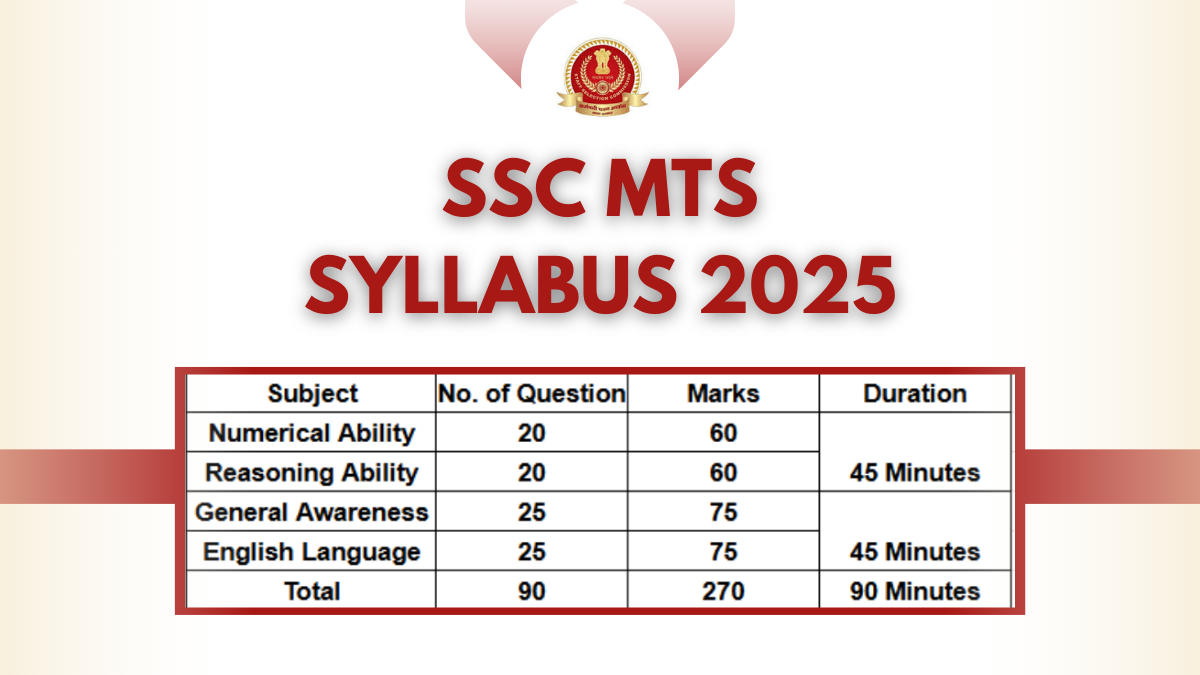
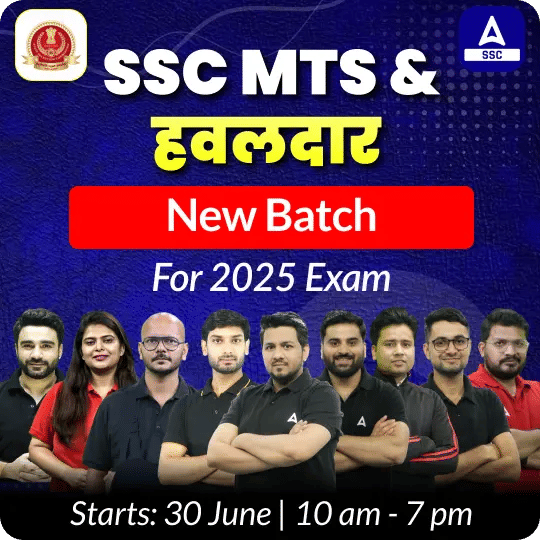
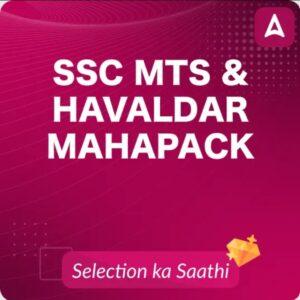

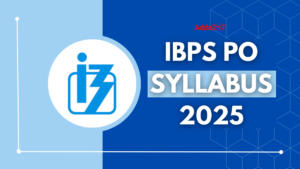 IBPS PO Syllabus 2025, Prelims and Mains...
IBPS PO Syllabus 2025, Prelims and Mains...
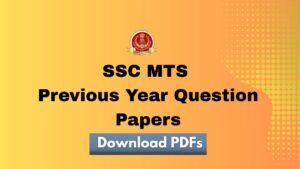 SSC MTS Previous Year Question Paper, Do...
SSC MTS Previous Year Question Paper, Do...
 IB ACIO Syllabus 2025, Exam Pattern For ...
IB ACIO Syllabus 2025, Exam Pattern For ...



